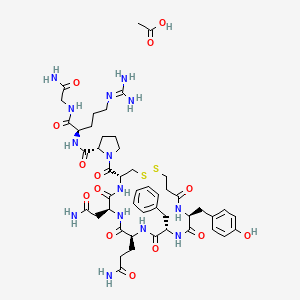The U.S. Food and Drug Administration (FDA) granted Ferring Pharmaceuticals Inc. approval to market Nocdurna, the first sublingual tablet for the treatment of nocturia due to nocturnal polyuria in adults who awaken at least two times per night to void. The formulation of the sublingual tablet and sex-specific dosing was demonstrated to be effective in reducing nighttime trips to the bathroom in adults 18 years and older.
Nocturnal polyuria, a disease of the kidneys, is the most common underlying cause of nocturia, which can affect adults at every age. It occurs when a person has insufficient nocturnal vasopressin, causing an overproduction of urine in the kidneys at night.2 Unlike treatments that target the bladder or prostate, Nocdurna acts on receptors in the kidney to absorb more fluid and produce less urine during the night while patients sleep. Nocdurna was approved with a boxed warning because it can cause hyponatremia.

“Millions of individuals across the country face nocturia each night, many of whom suffer the daytime consequences of fatigue and lost productivity,” stated Jeffrey P. Weiss, MD, FACS, Professor and Chairman of Urology, State University of New York (SUNY) Downstate Medical Center. “Nocdurna offers the first sublingual tablet that can target the source of nighttime urination, the kidney, and effectively reduce the number of times patients have to wake up each night to urinate.”
“For more than a decade, Ferring has provided innovative treatments for patients suffering from nocturia in many other countries around the world,” said Paul Navarre, CEO, Ferring US. “Following today’s FDA approval, we are delighted to make Nocdurna available as an option for US healthcare providers and their patients.”
The FDA approval of Nocdurna is based on three double-blind placebo-controlled, multi-center, randomized trials and one open-label extension trial of up to three years in patients 18 years and older. Included in the clinical trials were patients also taking OAB or BPH medications. The co-primary endpoints in studies 1 and 2 were the change in number of nighttime voids compared to baseline, and the percentage of patients who achieved at least a 33% reduction from baseline in the mean number of nighttime voids during three months of treatment. Clinical trials demonstrated an average reduction of nocturnal voids of 52% in women (n=118) and 43% in men (n=102) relative to mean baseline (reduction of 1.5 and 1.3 voids respectively). The mean baseline was 2.9 for women and 3.0 for men. Also, 78% of women and 67% of men receiving NOCDURNA achieved a 33% reduction in mean number of nocturnal voids over a three month period compared to baseline.1
Nocdurna can cause hyponatremia. Severe hyponatremia can be life-threatening, leading to seizures, coma, respiratory arrest, or death. Nocdurna is contraindicated in patients at increased risk of severe hyponatremia, such as patients with excessive fluid intake, illnesses that can cause fluid or electrolyte imbalances, and in those using loop diuretics or systemic or inhaled glucocorticoids. Ensure the serum sodium concentration is normal before starting or resuming Nocdurna. Measure serum sodium within 7 days and approximately 1 month after initiating therapy, and periodically during treatment. Monitor serum sodium levels more frequently in patients 65 years of age and older and in patients at increased risk of hyponatremia. If hyponatremia occurs, Nocdurna may need to be temporarily or permanently discontinued.
